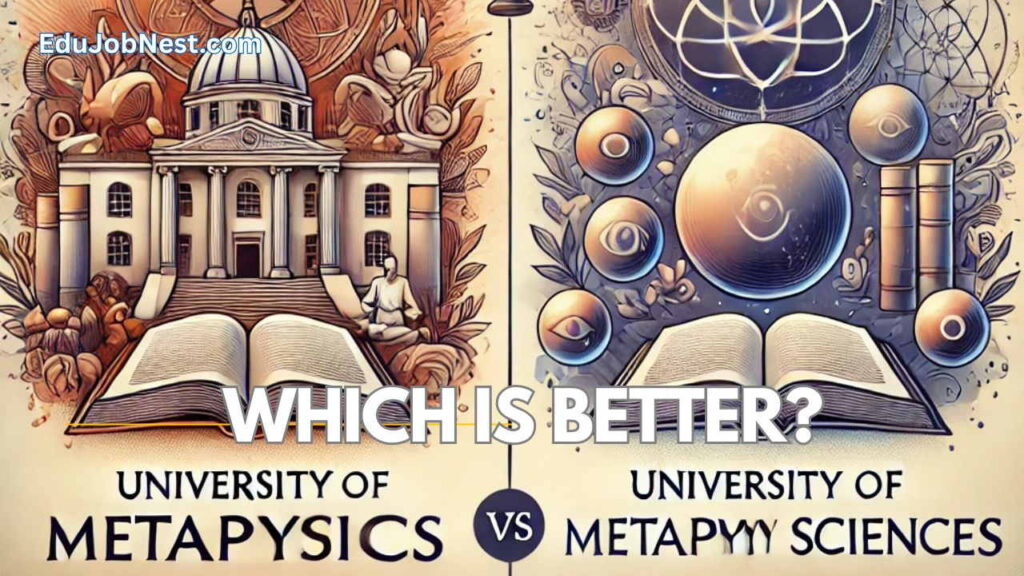
Choosing the right college is a pivotal decision that shapes your academic, professional, and personal future. In New York City, two institutions often compared are Yeshiva University and CUNY Lehman College. Both schools offer unique strengths, but they cater to different student needs, academic goals, and budgets.
This comprehensive comparison of Yeshiva University vs. Lehman College will explore key factors like tuition, academics, campus life, admissions, and outcomes to help you decide which is better for you.
Also Read: Michigan State University Application Fee for International Students: A Complete Guide for 2025
Overview of Yeshiva University vs Lehman College
Yeshiva University
Yeshiva University, located in New York, NY, is a private, not-for-profit institution with a strong emphasis on Jewish values and liberal arts education. Known for its rigorous academic programs and professional schools, such as the Cardozo School of Law and Albert Einstein College of Medicine, Yeshiva serves 6,826 students. It offers a blend of religious and secular education, making it ideal for students seeking a faith-based academic experience.
CUNY Lehman College
CUNY Lehman College, situated in the Bronx, NY, is a public institution within the City University of New York system. With a student body of 12,894, Lehman is known for its affordability, diverse programs, and commitment to serving a varied student population. It excels in fields like nursing, social work, and education, catering to students seeking practical, career-oriented degrees.
Key Comparison Factors
1. Tuition and Financial Aid
Yeshiva University
-
Tuition: $49,900 annually (2025 data), significantly higher due to its private status.
-
Financial Aid: 94% of students receive financial aid, with an average grant of $31,055.
-
Net Price: The average net price after aid is higher than Lehman, reflecting its premium education model.
-
Living Costs: Room and board at Yeshiva cost $15,000, which is lower than Lehman’s estimated off-campus housing budget.
CUNY Lehman College
-
Tuition: $15,360 for in-state students, making it a budget-friendly option.
-
Financial Aid: 91% of students receive aid, with an average grant of $9,389.
-
Net Price: The average net price is $4,076, one of the lowest in New York, ideal for cost-conscious students.
-
Living Costs: Off-campus housing is estimated at $21,788, higher than Yeshiva’s on-campus options.
Verdict: Lehman is far more affordable, especially for in-state students. Yeshiva’s higher costs are offset by generous financial aid, but it remains a pricier option. Choose Lehman for affordability, or Yeshiva if you can secure substantial aid and value its unique offerings.
2. Admissions and Selectivity
Yeshiva University
-
Acceptance Rate: 63.7%, moderately selective.
-
SAT Scores: Average SAT score is 1229, indicating strong academic preparation.
-
GPA: Accepted students have an average high school GPA of 3.41.
CUNY Lehman College
-
Acceptance Rate: 55.4%, slightly more selective than Yeshiva.
-
SAT Scores: Average SAT score is 1,010, lower than Yeshiva.
-
GPA: Accepted students have an average high school GPA of 3.2.
Verdict: Yeshiva attracts students with higher academic credentials, while Lehman’s lower SAT requirements make it more accessible. If you have strong test scores and grades, Yeshiva may be a better fit; otherwise, Lehman offers a more inclusive admissions process.
3. Academic Programs and Reputation
Yeshiva University
-
Programs: Offers a wide range of undergraduate and graduate programs, with strengths in law, medicine, business, and Jewish studies. Its dual curriculum combines liberal arts with religious education.
-
Reputation: Ranked higher in national university rankings due to its specialized programs and research opportunities.
-
Student-to-Faculty Ratio: 7:1, allowing for personalized attention.
CUNY Lehman College
-
Programs: Known for career-focused programs like nursing, education, and social work. It also offers liberal arts and sciences degrees.
-
Reputation: A respected public institution with a focus on accessibility and diversity, though it ranks lower than Yeshiva in national standings.
-
Student-to-Faculty Ratio: 15:1, less intimate but still supportive.
Verdict: Yeshiva excels for students interested in a faith-based education or elite professional programs. Lehman is better for practical, career-oriented degrees and a diverse academic environment.
4. Campus Life and Student Experience
Yeshiva University
-
Location: Campuses in Manhattan and other parts of NYC offer urban vibrancy and cultural access.
-
Campus Life: Emphasizes Jewish traditions, with events and activities centered around religious and community values.
-
Athletics: Competes in NCAA Division III (Skyline Conference). Its baseball team gained attention for snapping a 100-game losing streak in 2025.
-
Diversity: Less diverse due to its religious focus, but inclusive of various Jewish backgrounds.
CUNY Lehman College
-
Location: Located in the Bronx, with a commuter-heavy campus and access to NYC’s resources.
-
Campus Life: Diverse student body with vibrant cultural and social activities, reflecting the Bronx’s multicultural community.
-
Athletics: Also competes in NCAA Division III (CUNYAC), with a notable baseball team that ended a 42-game losing streak in 2025.
-
Diversity: Highly diverse, with a strong representation of minority and first-generation students.
Verdict: Yeshiva offers a tight-knit, faith-based community, while Lehman provides a dynamic, diverse experience. Choose based on whether you prefer a religious or multicultural environment.
5. Graduation Rates and Career Outcomes
Yeshiva University
-
Graduation Rate: 84%, reflecting strong student support and retention.
-
Post-Graduation Earnings: Graduates earn an average of $72,200 ten years after graduation.
-
Loan Debt: Average federal student loan debt is $19,500, with 81% of graduates actively repaying loans three years out.
CUNY Lehman College
-
Graduation Rate: 40%, lower due to its commuter population and diverse student challenges.
-
Post-Graduation Earnings: Graduates earn an average of $45,400 ten years after graduation.
-
Loan Debt: Average debt is $10,200, with 49% of graduates repaying loans three years out.
Verdict: Yeshiva graduates have higher earnings and graduation rates, but Lehman’s lower debt makes it a safer financial bet. Consider your career goals and financial priorities.
6. Athletics and Extracurriculars
Both schools compete in NCAA Division III, with recent attention on their baseball teams’ historic doubleheader in April 2025, where Lehman ended a 42-game losing streak and Yeshiva snapped a 100-game skid. Yeshiva’s Maccabees play in the Skyline Conference, while Lehman’s Lightning compete in CUNYAC. Extracurriculars at Yeshiva often revolve around Jewish culture, while Lehman offers a broader range of clubs reflecting its diverse student body.
Verdict: If athletics are a priority, both schools offer opportunities, but Lehman’s larger campus may provide more extracurricular variety.
Also Read: University of Metaphysics vs University of Metaphysical Sciences: Which is Better?
Which Is Better: Yeshiva or Lehman?
The “better” choice depends on your priorities:
-
Choose Yeshiva University if you seek a faith-based education, stronger academic reputation, higher earning potential, and are willing to pay a premium or secure significant financial aid.
-
Choose CUNY Lehman College if affordability, diversity, and career-focused programs like nursing or education are your goals, especially if you’re an in-state student.
External Resources for Further Research
-
CollegeSimply: Yeshiva vs. Lehman Comparison – Detailed side-by-side stats on tuition, admissions, and more.
-
U.S. Department of Education College Scorecard – Official data on college costs, outcomes, and financial aid.
-
NCAA Division III Athletics – Explore athletic programs and updates for both schools.
Conclusion
Yeshiva University and CUNY Lehman College offer distinct paths to higher education. Yeshiva’s private, faith-based environment and strong academic reputation make it ideal for students seeking a prestigious, religious education. Lehman’s affordability, diversity, and practical programs appeal to students prioritizing cost and career preparation. Evaluate your budget, academic goals, and campus preferences to make the best choice.





4 thoughts on “Yeshiva University vs Lehman College: Which Is Better for You?”